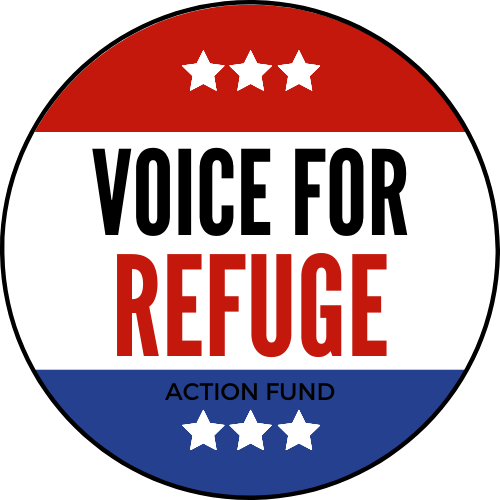Refugees are significantly impacted by the coronavirus / COVID-19. Many refugees are essential workers or otherwise on the frontlines of pandemic response, including in the healthcare field, as truck drivers critical to the supply chain, and as grocery store employees. Others are without income at this time and with fewer social networks than those who have lived in the United States for longer. While Congress enacted legislation to respond to growing needs during this time, many refugees are left out and unable to receive cash payments, unemployment benefits, and other desperately-needed relief. Below are some examples.
Cash Payments: In general, people can only qualify for the cash payments (also referred to as stimulus checks or the Economic Impact Payments (EIP)) in the CARES Act if they have a Social Security Number; AND are either U.S. citizens, have a green card, or meet IRS residency requirements; AND have either file a 2019 or 2018 tax return, social security statement, SSDI/SSI, or the non-filer form. There are multiple issues that may prevent some refugees from accessing this relief:
- Refugees who are recent arrivals may not meet the IRS residency requirements to receive the cash payment. There remains a lack of clarity from the IRS as to how to calculate who meets IRS residency requirements. There’s potentially more than 7,400 refugees who will not be able to meet that requirement and may be left without a cash payment.
- Many refugees, especially those who have lived in the United States for less than one year and those who make under the income threshold ($12,200 for an individual and $24,400 for a married couple), have not filed taxes. It is critical that the resettlement network has the capacity to assist refugees in filing their 2019 tax returns (or 2020 taxes for those who can receive a delayed “credit”) – or assistance in submitting the non-filer form for those who can.
- The IRS non-filer form originally said that it should only be used by U.S. citizens or green card holders (as of 2019), so refugees who had not lived in the United States for a year and/or had not adjusted to LPR status by December 31, 2019 could not use this option. This was later changed, without announcement, only about a week before the deadline to use the non-filer form, causing many to scramble to get the word out and everything filed in time.
- Many refugees, especially older refugees, are eligible to receive social security and other benefits, but often do not apply. It is critical that the resettlement network has the capacity to assist these refugees to file for social security, SSDI, or SSI. In addition, adults (without qualifying children) who receive SSI will automatically receive their cash payment (if they’re otherwise eligible); but adults with qualifying children age 16 or younger will be required to submit the non-filer form. And if they are not U.S. citizens or LPRs, then they must file taxes even if they otherwise would not have to.
- Refugees who arrived after government offices closed are seeing significant/indefinite delays in obtaining their social security numbers, which make it difficult if not impossible for them to access a variety of public benefits that are now more important than ever for their survival. Should these delays continue, it could also impact refugees’ ability to receive the cash payment a credit on their 2020 return next year).
This is all very complex for anyone to understand, let alone for refugees with limited English proficiency or who do not have a strong understanding of U.S. processes. While resettlement offices are attempting to help refugees navigate all of this, many refugees lack access to a computer, the Internet, or a smartphone to fill applications or communicate effectively with their case worker about this complex information.
Unemployment Benefits: The CARES Act created multiple programs to expand unemployment benefits, however many refugees will be unable to receive these benefits in a timely manner. Issues that are preventing some refugees from accessing these benefits include:
- State unemployment insurance offices have minimum work history requirements (determined by the state). Many refugees – especially recent arrivals – will not meet these work history minimums. Even if they are able to apply for other unemployment benefits, it can be difficult (even for fluent English speakers) to understand where to apply, how to apply, and deal with questions that arise. It is incumbent upon the resettlement sites to provide urgently-needed education for refugees on how to apply for unemployment benefits (whether it’s state UI claims or other CARES Act programs).
- State unemployment insurance claims have hit record-highs. While this is not specific only to the refugee population, many individuals are seeing significant delays in receiving state UI benefits. Given the particular vulnerabilities refugees face, it is critical that the federal government provide emergency services to support their immediate needs.
- Although the Pandemic Unemployment Assistance (PUA) program was specifically created to support individuals without sufficient work histories and for gig economy workers, independent contractors, etc., the PUA program – and the Pandemic Unemployment Compensation (PUC) program – are slow in their ramp up. Most states aren’t even accepting applications yet for PUA & PUC, leaving many refugees vulnerable – especially for recent arrivals who have less of an attachment to the workforce and may not even qualify for PUA.
- Work authorization is required to receive unemployment benefits. Many refugees who arrived a little more than a year ago are seeing their Employment Authorization Documents expire or not being viewed as current, without being able to obtain their green card yet because of government office closures. For some refugees, it may appear that their authorization is no longer valid, despite having a Social Security Card and State ID (which meet I-9 requirements).
Paid Leave: The paid leave provisions in COVID relief legislation only apply to employers with fewer than 500 employees, and the Department of Labor can and has exempted many employers with fewer than 50 employees. Many refugees work for very large companies with more than 500 employees, such as meatpacking plants, agricultural businesses, hotel chains, etc., which will not be required to provide their employees paid leave. Many refugees also work for smaller employers, including many non-profits that may not be required to provide their employees paid leave.
Small Business: As of April 16, the Small Business Administration announced that the $350 billion allocated for the Payment Protection Program (PPP) has maxed out and they have stopped receiving claims and ceased enrolling new PPP lenders. Further, Economic Injury Disaster Loan Program (EIDL) funds have been depleted. While these programs could have helped some local resettlement offices and other small businesses employing refugees, they are no longer open to applicants.
Supplemental Nutrition Assistance (SNAP) Program: The CARES Act did not expand benefits for individuals to receive food stamps through SNAP. Particularly given that unemployment benefits count toward SNAP eligibility, and that there remain questions about whether they count as income for Refugee Cash and Medical Assistance, we are concerned about refugees’ access to food assistance – especially for recent arrivals, a majority of whom are on SNAP at the 90-day mark.
Temporary Assistance for Needy Families (TANF) Program: The CARES Act did not expand TANF, leaving many families without additional emergency assistance.
COVID-19 Testing: Anyone who is uninsured and not covered by Medicaid, the Children’s Health Insurance Program (CHIP), the Affordable Care Act (ACA) marketplace, or any other individual or group health plan is eligible for free COVID-19 testing. However, it is incredibly difficult for our clients, especially English-language learners, to navigate the U.S. healthcare system – particularly given that testing has been slow to begin. Medical providers have narrow criteria to determine whether an individual can be tested – and that much more difficult to know where to go. Many refugees are essential workers or on the frontlines of the COVID-19 response are at heightened risk of contracting (or have contracted) coronavirus. It is imperative that the administration invests in meeting refugees’ medical needs.
Public Charge: There remains a lot of fear in the refugee and immigrant community that accessing public services (including services they are eligible to receive without a public charge determination) will hinder their ability to become legal permanent residents or U.S. citizens or reunify with family members who remain overseas. Despite USCIS’s announcement it will not consider COVID-19 testing or treatment as part of public charge determinations, many clients need support to better understand which benefits they are eligible for and to be reassured that utilizing them will not hurt them in some way. Resettlement agencies need the capacity to educate clients and their families about how these forms of relief interact with public charge determinations, as well as other public benefits.

